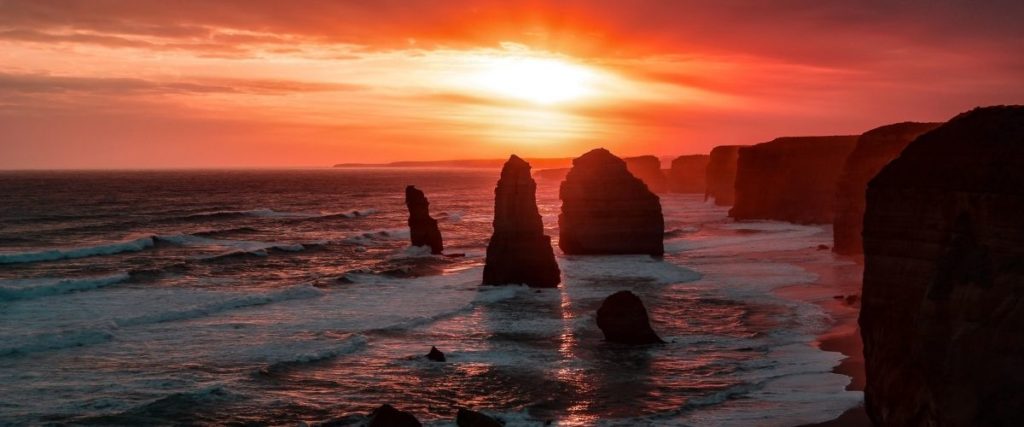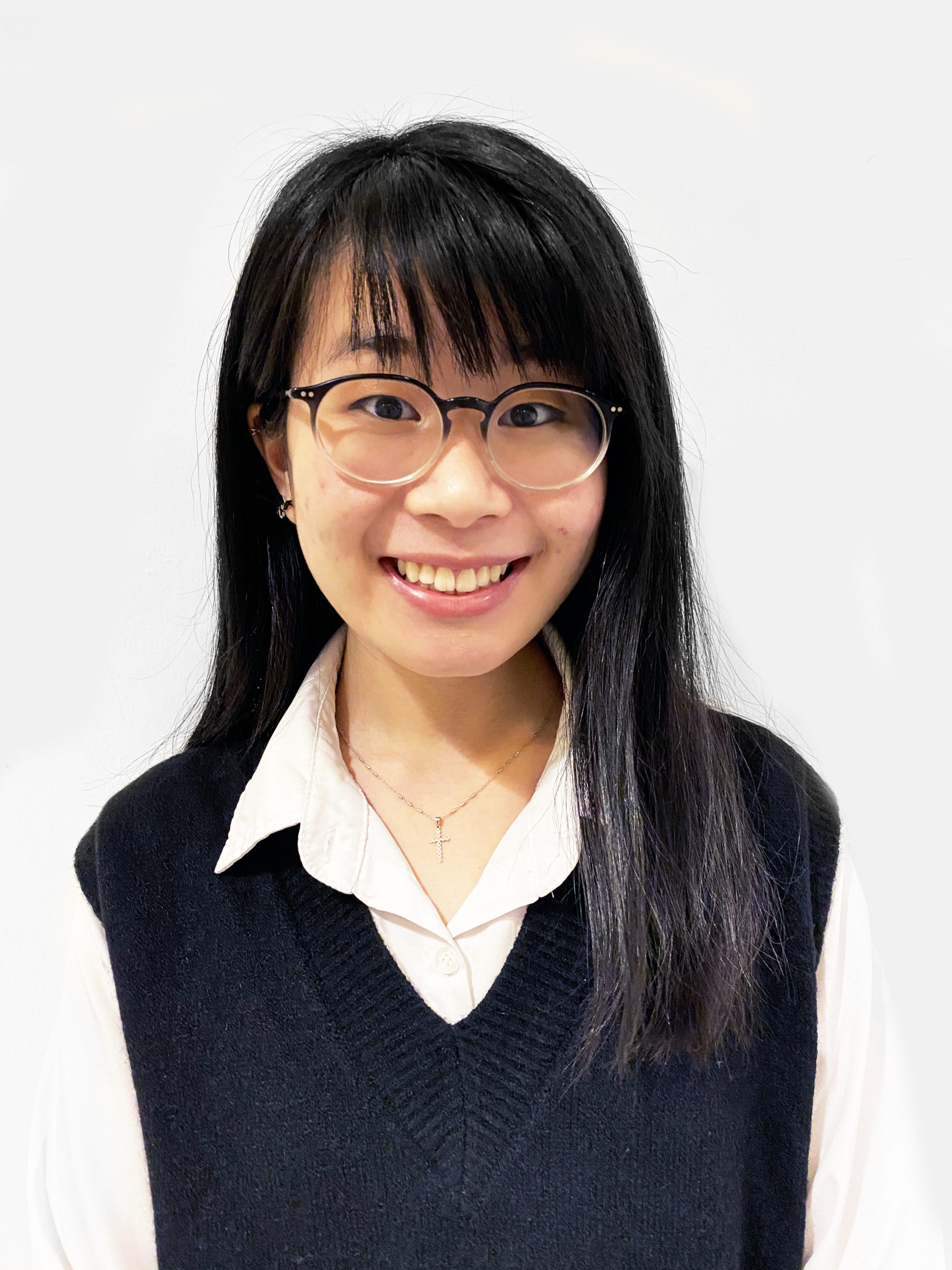From Oodegerro Noonuccal to Jack Davis to Hyllus Maris, here are 7 powerful and impactful poems about the experiences and adversity faced by indigenous people in Australia.
The history of Indigenous Australians began almost more than 65,000 years ago, they are considered to be the oldest living human population outside of Africa. However, even with their fascinating culture, language, and beliefs, they still face racism every day. Here are 7 eye-opening poems written by Indigenous Australian writers to give you a glimpse into their history, struggles, and heavy emotions that also inspire and spread hope for a better future.
‘A Song of Hope’ – Oodegeroo Noonuccal (Kath Walker)
Look up, my people,
The dawn is breaking
The world is waking
To a bright new day
When none defame us
No restriction tame us
Nor colour shame us
Nor sneer dismay.
Now brood no more
On the years behind you
The hope assigned you
Shall the past replace
When a juster justice
Grown wise and stronger
Points the bone no longer
At a darker race.
So long we waited
Bound and frustrated
Till hate be hated
And caste deposed
Now light shall guide us
No goal denied us
And all doors open
That long were closed.
See plain the promise
Dark freedom-lover!
Night’s nearly over
And though long the climb
New rights will greet us
New mateship meet us
And joy complete us
In our new Dream Time.
To our fathers’ fathers
The pain, the sorrow;
To our children’s children
the glad tomorrow.
Ooderoo of the Noonuccal (Kath Walker), was one of the most well-respected poets of her time. Her father belonged to the Nunukul people, who traditionally lived on the Northern portion of Minjerribah, North Stradbroke Island, Queensland. Kath Walker wrote ‘A Song of Hope’ in the 1960s after realizing that there is actually hope in a broken world once she saw a decrease in racism towards indigenous people by the English settlers.
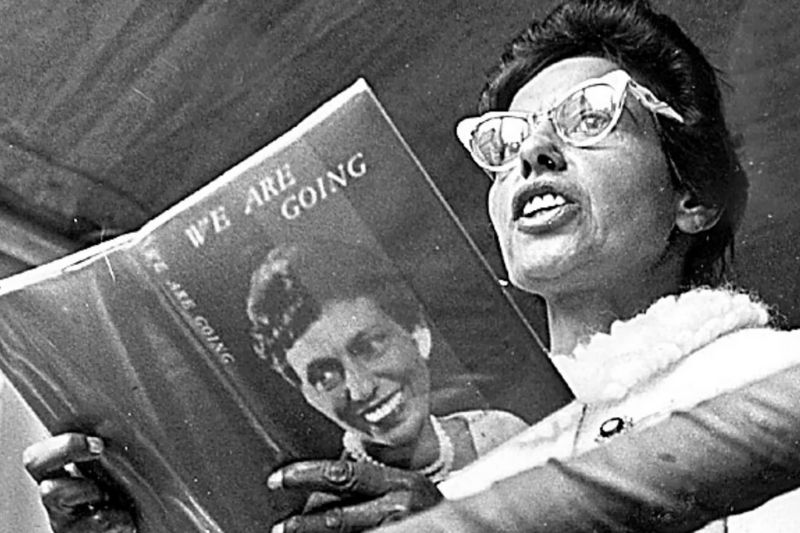
‘Come Over Murri’ – Lionel Fogarty
I just remember Murris not only you die
in prisons or from poor conditions
Over other countries they’re dying too and prisoned for surviving
like Latin America, where white man still tried to cause divisions with murder, rape and oppressions for exploitation.
We are not the only sufferers.
We are not just the ones fighting for land cultural rights.
Overseas in other lands they are fighting against the same enemy
which is capitalist or gone wrong commos.
We are in one world, but we here are forgetting about other native people’s struggles.
We as Murri must look here and support the necessary struggles of other countries, for their fights affect our fights.
Take the black out of South Africa and put them here we will find the same racist things.
Take red people up in Canada, they’re still fighting for rights.
Take the Pacific natives they are still struggling for what they need.
And take whites overseas, they are fighting too, oh, like the Irish people who want Britain out.
So Murris we have to have feeling, thinking and action for all low, small native peoples overseas.
And then we will get world understanding and unity, even love for one another’s cultures.
Just remember they die, fight too Murri.
The other countries are waiting now for your support and fight.
Lionel George Fogarty was born in Barambah (Cherbourg) located in the South Burnett region of Southern Queensland. He has been very active in the political struggles of indigenous people. His first poetry collection Kargun was published in 1980, which highlights the living realities of Australia, going through all the emotions of guilt, despair, hopelessness, and sadness.
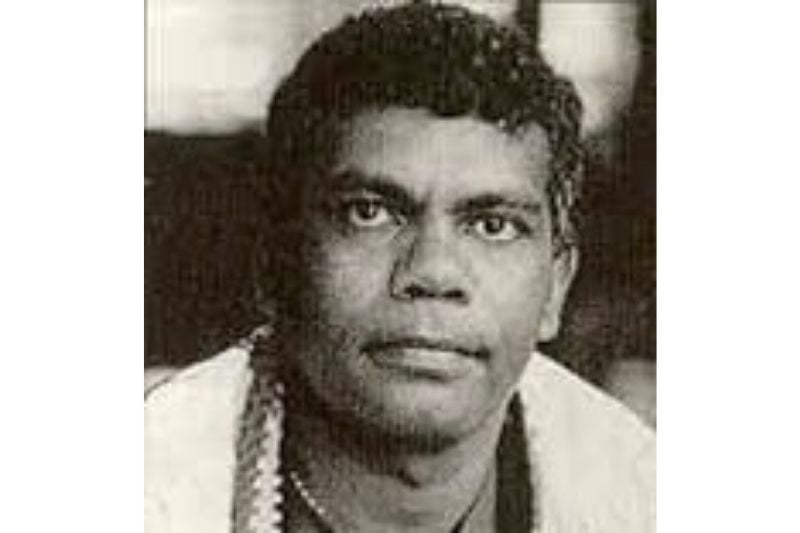
‘Aboriginal Australia’ – Jack Davis
To the Others
You once smiled a friendly smile,
Said we were kin to one another,
Thus with guile for a short while
Became to me a brother.
Then you swamped my way of gladness,
Took my children from my side,
Snapped shut the law book, oh my sadness
At Yirrakalas’ plea denied.
So, I remember Lake George hills,
The thin stick bones of people.
Sudden death, and greed that kills,
That gave you church and steeple.
I cry again for Warrarra men,
Gone from kith and kind,
And I wondered when
I would find a pen
To probe your freckled mind.
I mourned again for the Murray tribe,
Gone too without a trace.
I thought of the soldier’s diatribe,
The smile on the governor’s face.
You murdered me with rope, with gun
The massacre of my enclave,
You buried me deep on McLarty’s run
Flung into a common grave.
You propped me up with Christ, red tape,
Tobacco, grog and fears,
Then disease and lordly rape
Through the brutish years.
Now you primly say you’re justified,
And sing of a nation’s glory,
But I think of a people crucified-
The real Australian story
Jack Davis was born in the North of Pilbara in Western Australia, and he was later sent to Moore River Native Settlement to learn farming. He fought for justice for his people and gained nationwide recognition for activism. Jack wrote ‘Aboriginal Australia’ in 1978, to show a truthful and unfiltered portrayal of urban life for an indigenous person.
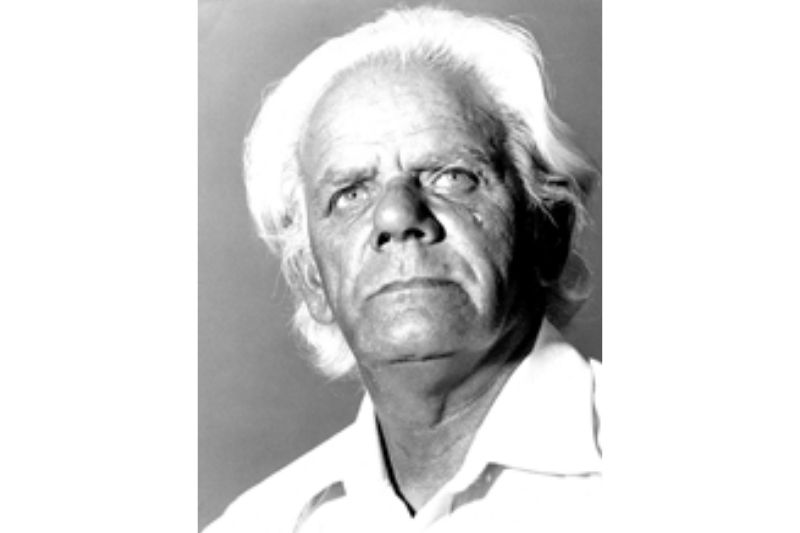
‘Shame’ – Kevin Gilbert
And some say “Shame” when we’re talkin’ up
And “Shame” for the way we are
And “Shame” cause we ain’t got a big flash house
Or a steady job and a car.
Some call it “Shame” when our kids they die
From colds or from sheer neglect
“Shame” when we live on the river banks
While collectin’ our welfare cheques
“Shame” when we’re blind from trachoma
“Shame” when we’re crippled from blights
But I reckon the worstest shame is yours
You deny us human rights
Kevin Gilbert was the first indigenous playwright and printmaker, who was born on the banks of the Lachlan River in New South Wales, a part of the Wiradjuri people. The tone of his poetry is often described as highly emotive, conflicted by struggles with his identity, and never feeling like he fully belonged.
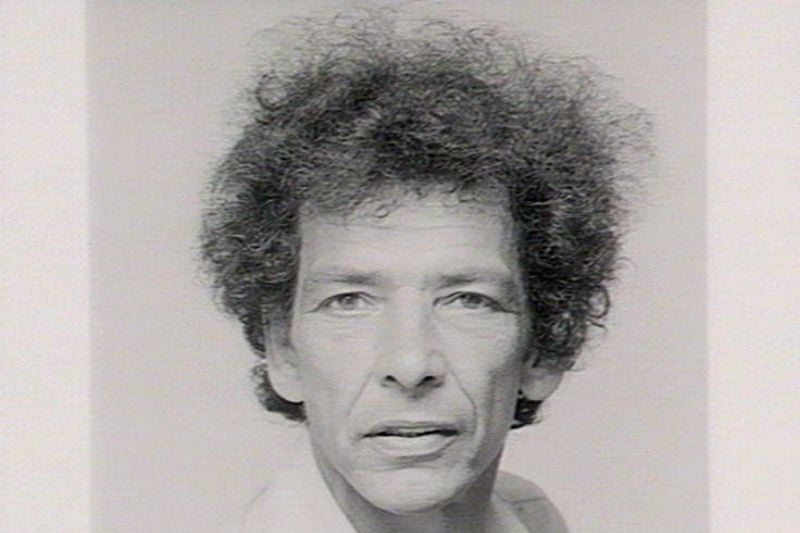
‘A One Ended Boomerang’ – Samuel Wagan Watson
For once you have tasted flight you will walk the earth with your eyes turned skywards, for there you have been and there you will long to return.
— Leonardo da Vinci
An hourglass constricted, the whore inside of me who is watching the clock, monitoring the time, this wasted time to get off, get going, lunar cycle gauge of tide and meridian. How I can hear the sand slip downward in my body clock? I need to be here, could be there, and not long ago the only place you wanted me to be was by your side … maybe?
I am a pencil that cannot sharpen,
ink that slides off paper,
outside of our time, I am lost,
a one ended boomerang.
Samuel Wagan Watson is from Brisbane Australia, of the Mununjali, Birri Gubba descent. Mainly known for his poem Smoke Encrypted Whispers which was about his upbringing in suburban Brisbane. This fourth collection of poems also won the NSW Premier’s Award in 2005.
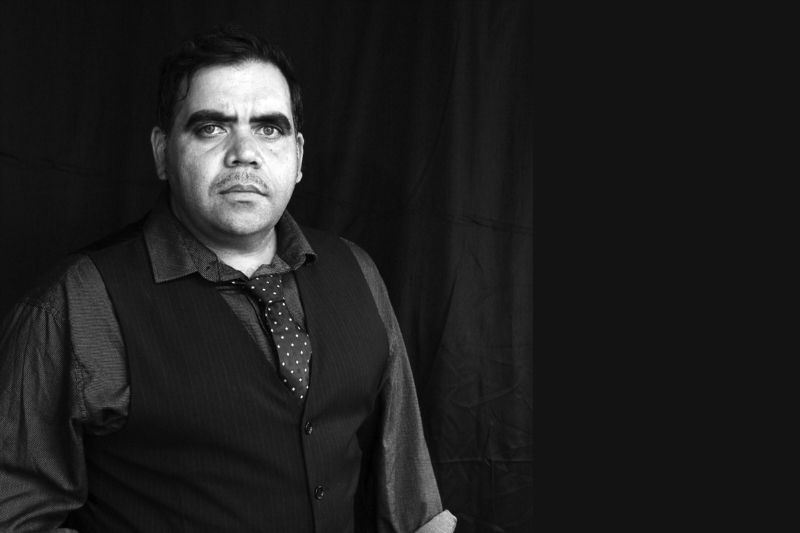
‘Don’t Want Me to Talk’ – Charmaine Papertalk Green
You don’t want me to talk about
Mining or its impact on Country
You don’t want me to talk about
The concept and construct of ‘whiteness’
Its dominance and power in society
You don’t want me to talk about
The art vultures here and everywhere
Modern day missionaries – the art kind
Saving us on the great white canvas
You don’t want me to talk about
Invasion of this land or a Treaty
It’s a shared true history – let’s heal
You don’t want me to talk about
Past injustices, cultural cruelty, cultural genocide
And the cultural pain that is left behind
It’s a shared true history – let us heal
You don’t want me to talk about
How reconciliation could be the wrong word
On its own and without truth
You don’t want me to talk about
Native titles process being for the white man
You don’t want me to talk at all
Most of the time – you have your ‘exotic’ pets
You want me to nod, smile and listen to you
And it doesn’t really matter if I don’t hear you
You don’t want me to talk about
How I have got a voice
And you don’t listen.
Charmaine Papertalk Green is from Wajjarri, Badimaya, and Southern Yamaji people of the MidWest Western Australia. ‘Don’t Want Me to Talk’ is about having a voiceless voice, and how indigenous people are voicing their struggles but no one is listening. Charmaine emphasises that people living in Australia need to acknowledge who the First Nations people of Australia are.
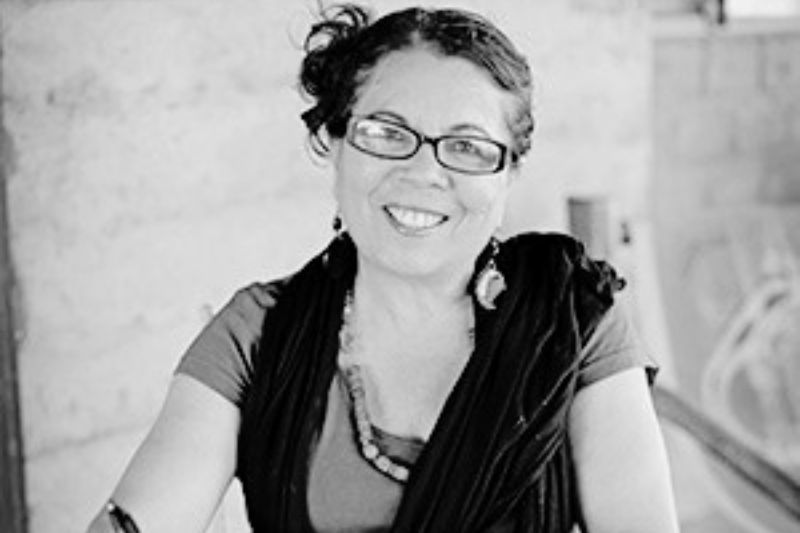
‘Spiritual Song of the Aborigine’ – Hyllus Maris
I am a child of the Dreamtime People
Part of this land, like the gnarled gumtree
I am the river, softly singing
Chanting our songs on my way to the sea
My spirit is the dust-devils
Mirages, that dance on the plain
I’m the snow, the wind and the falling rain
I’m part of the rocks and the red desert earth
Red as the blood that flows in my veins
I am eagle, crow and snake that glides
Through the rainforest that clings to the mountainside
I awakened here when the earth was new
There was emu, wombat, kangaroo
No other man of a different hue
I am this land
And this land is me
I am Australia.
Hyllus Maris was born in Cummeragunja in 1934. With the intent of letting the public know and understand the relationship between indigenous people and Australia. Hyllus wrote ‘Spiritual Song of the Aborigine’ to share what being one with nature is like, speaking through an indigenous viewpoint.
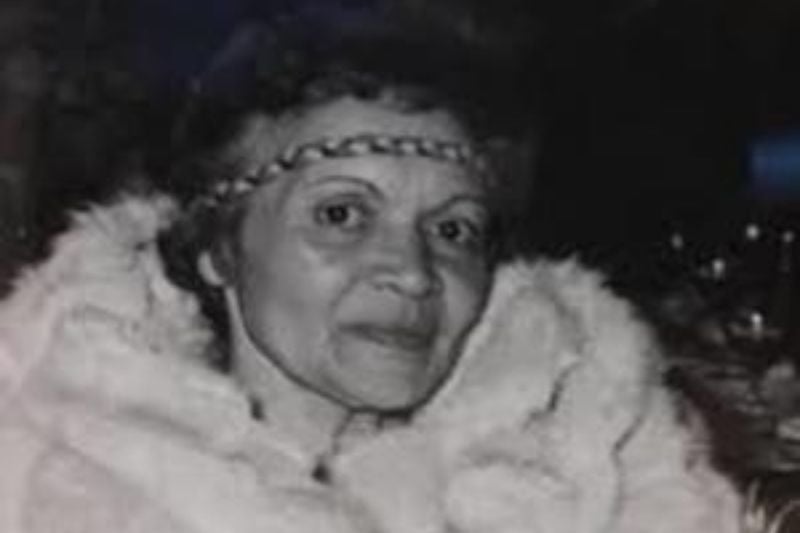
Related Articles
7 Inspirational Poems for Women About Resilience
